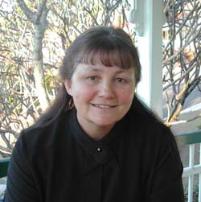Elder's death at airstrip: research exposes deeper issues
Published on 06 September, 2006
The death of an Aboriginal elder, who was left to die at a remote airstrip in the Northern Territory after treatment at Katherine Hospital, came as no surprise to NHMRC (National Health & Medical Research Council) Senior Research Fellow, Dr Pam McGrath, who conducted a study of palliative care services for Indigenous Australians in the Northern Territory from 2002 until 2004.
 “This tragedy sadly confirms the findings from our research,” said Dr McGrath, who is also Director of the International Program for Psychosocial Health Research (IPP-SHR) at Central Queensland University.
“This tragedy sadly confirms the findings from our research,” said Dr McGrath, who is also Director of the International Program for Psychosocial Health Research (IPP-SHR) at Central Queensland University.
“Relocation of Indigenous Australians from their homelands for treatment in city hospitals is so fraught with cultural and practical difficulties that it should be avoided whenever possible,” she said.
The research showed that it was not uncommon for Indigenous people to be returned to their communities without an escort and that there was often insufficient information provided to the community in advance of the patients’ return home to ensure that they would be adequately cared for.
“Finding and supporting suitable escorts for patients is essential, but the escort role is an exceptionally difficult one and it can be extremely difficult to find and retain suitable escorts,” Dr McGrath said.
“Our study showed that even professional carers who sometimes act as escorts for patients are not always able to cope with the immense responsibility, alienation and separation from home and family that is part of the relocation experience”.
“This is a serious issue, especially for older Indigenous patients with limited English, who may have never before left their homelands,” Dr McGrath said.
The research also highlighted serious practical obstacles to care, including transportation difficulties, vast distances, staff shortages and limited resources and funding.
“We were told of instances in which lack of room on a plane meant that an Aboriginal person was unable to have an escort to accompany them,” Dr McGrath said.
As part of the 2-year research study and report a new model for palliative care provision for Indigenous communities was developed.
The model emphasises building up local community-based services in order to deflect the need for relocation for medical treatment in the first place. It also includes a set of recommendations for selecting and supporting escorts in the most effective and culturally appropriate way when relocation is considered essential.
ABC Online coverage of the story can be found here: http://www.abc.net.au/news/newsitems/200608/s1727507.htm .
Photo: Dr Pam McGrath.

